Spinning fluffy, sugary clouds of cotton candy is a dream for many entrepreneurs. This nostalgic treat lights up faces at carnivals, malls, and events, making it a fun and potentially profitable business. But before you fire up your cotton candy machine, there’s a key question to answer: Do you need a license for a cotton candy business? The short answer is yes, but the details depend on where you’re operating, how you’re selling, and what kind of setup you have. Let’s break it down to help you get started legally and confidently.
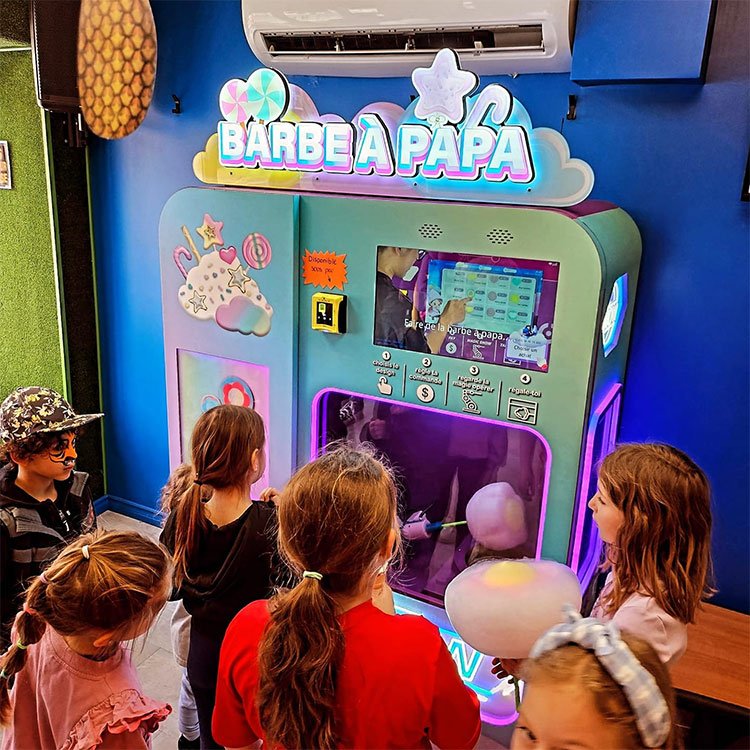
Table of Contents
Understanding Licensing Requirements
Starting a cotton candy business means diving into the food industry, which is tightly regulated to protect public health. Even though cotton candy is a simple product—mostly spun sugar—it’s still considered food, so you’ll need to comply with local laws. The licenses and permits required vary based on factors like your location, whether you’re selling from home or a commercial space, and if you’re operating at events or fixed locations.
Here are the most common licenses you might need:
- Business License: Required in most places to legally operate any business.
- Food Vendor’s License: Specific to selling food products like cotton candy.
- Health Department Permit: Ensures your setup meets hygiene and safety standards.
- Temporary Event Permits: Needed for selling at fairs, festivals, or markets.
In some regions, cottage food laws allow you to sell non-perishable foods like cotton candy from your home kitchen with fewer regulations. However, not all areas include cotton candy in these laws, so always check with your local health department or business licensing office.
For example, a small business owner in a college town shared on Reddit their confusion about whether street vending required a food cart license. The advice? Call local authorities to clarify specific rules—a step every entrepreneur should take.
Licensing in Different Regions
Licensing requirements aren’t universal; they vary by country, state, and even city. Below are examples of what you might encounter in key markets:
| Region | Key Requirements | Notes |
|---|---|---|
| United States | Business license, food vendor’s license, health permit | Varies by state. California allows cottage food sales, but others may require commercial kitchens. |
| United Kingdom | Food business registration, hygiene compliance | Register with local authority at least 28 days before starting. |
| China | Food production license | Different permits for on-site vs. pre-packaged sales. |
United States: In the U.S., regulations differ widely. For instance, California’s cottage food laws permit home-based cotton candy sales, but states like New York may mandate a commercial kitchen. Contact your local health department for clarity, as advised by Go Air Mart.
United Kingdom: Food businesses must register with their local authority, and you may need to comply with food hygiene rules. If you’re using a vending machine, ensure it meets safety standards.
China: A food production license is required, and additional permits may apply depending on whether you’re making cotton candy on-site or selling pre-packaged products.
Since Wider Matrix exports to over 130 countries, their Cotton Candy Vending Machines are built to meet international standards, helping you navigate compliance in various markets.
Introducing Wider Matrix
Wider Matrix (GZ) Technology Co., Ltd. is a global leader in vending machine manufacturing, offering innovative solutions like custom phone case vending machines, DIY Phone Case Vending Machines, and cotton candy vending machines. With over five years of experience in self-service equipment and content marketing, they’ve served more than 20 international food machinery brands, earning a reputation for quality and reliability.
Their cotton candy vending machines stand out for their craftsmanship. Made with food-grade stainless steel, these machines are durable, easy to clean, and designed for high-traffic environments like amusement parks and malls. Features like smart payment systems and energy-efficient designs make them a top choice for modern businesses.
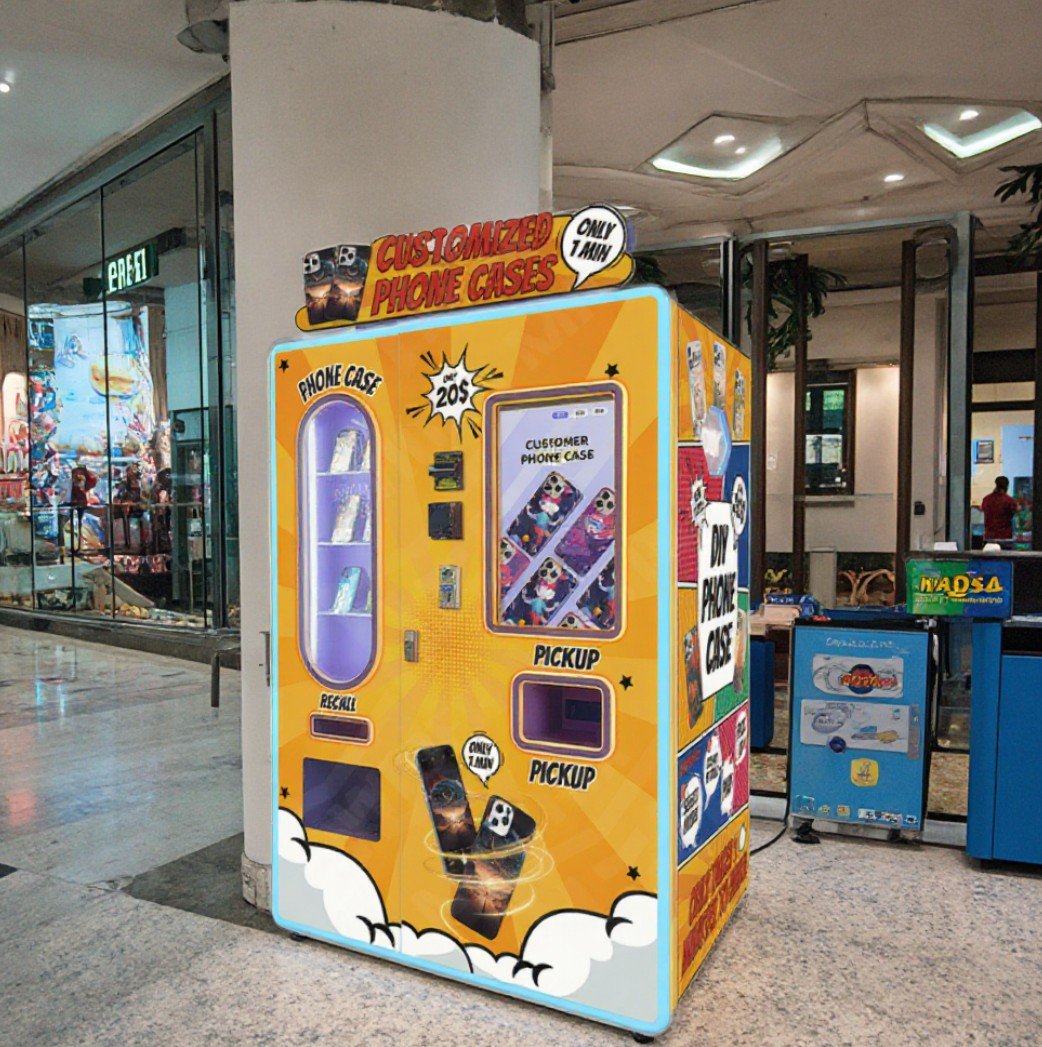
Wider Matrix holds certifications like CE, UKCA, RoHS, KC, BRC, Kosher, and HALAL, ensuring their machines meet stringent safety and quality standards worldwide. As a wholesale supplier, they’ve exported over 3,000 machines to 130+ countries, including the U.S., Canada, Europe, and Asia, as of September 2024. Their participation in global exhibitions like the Canton Fair and Las Vegas Trade Show keeps them ahead of industry trends.
Learn more about their expertise at Wider Matrix’s About page.
Benefits of Cotton Candy Vending Machines
Running a cotton candy business with a vending machine offers a game-changing advantage. Unlike traditional setups, vending machines automate the process, reducing labor costs and boosting efficiency. Wider Matrix’s machines are perfect for entrepreneurs looking to scale their operations.
- Low Maintenance: Built for durability, these machines require minimal upkeep, saving you time and money.
- High-Traffic Ready: Place them in amusement parks, malls, or airports for passive income.
- Certified Safety: CE and FDA certifications ensure compliance with food safety standards.
- 24/7 Support: Wider Matrix offers round-the-clock after-service to keep your business running smoothly.
Imagine a bustling amusement park where your vending machine spins cotton candy for delighted kids and parents. With minimal effort, you’re generating revenue while focusing on growth.
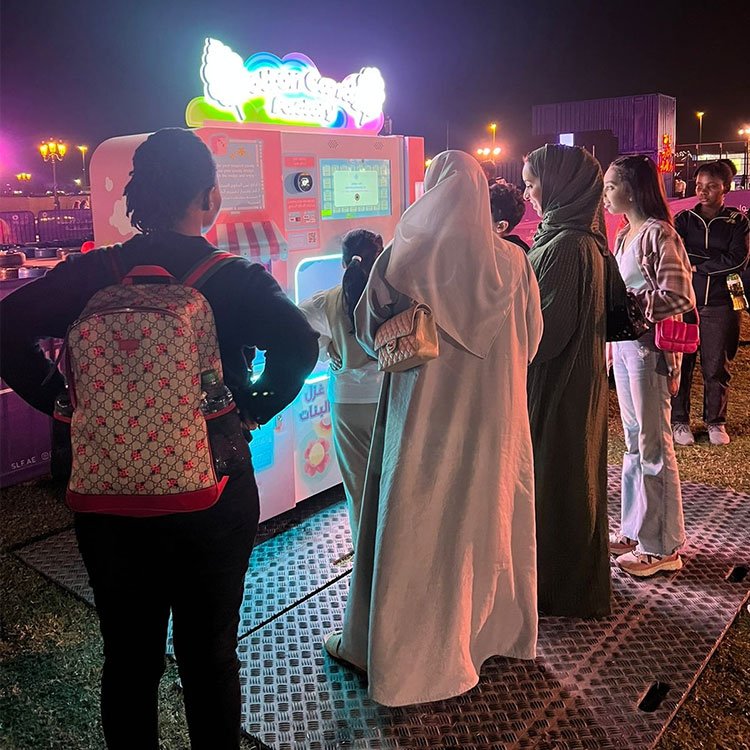
FAQ on Cotton Candy Business Licensing
Here are answers to common questions to guide you through the licensing process:
Q1: Do I need a license to sell cotton candy at events?
A1: Yes, you typically need a temporary food vendor’s license or permit for events. Requirements vary, so check with event organizers or your local health department, as noted by Candy Lovers Emporium.
Q2: Can I make cotton candy from home and sell it?
A2: It depends on your location. Some areas, like parts of Georgia (Georgia Department of Agriculture), allow cottage food sales, but others require a commercial kitchen. Verify local rules.
Q3: What are the health and safety requirements for selling cotton candy?
A3: Use food-grade ingredients and keep equipment clean. Health inspections may be required, especially for commercial setups, per King County guidelines.
Q4: Do I need insurance for my cotton candy business?
A4: Liability insurance is recommended to protect against accidents or injuries, as suggested by Quora discussions.
Conclusion
Launching a cotton candy business is a sweet opportunity, but navigating licensing requirements is essential for success. Whether you’re spinning cotton candy at a fair or running a vending machine in a mall, understanding local regulations ensures you operate legally and safely. The question, Do you need a license for a cotton candy business?, has a clear answer: yes, but the specifics depend on your setup and location.
For a hassle-free experience, consider Wider Matrix’s cotton candy vending machines. With their durability, certifications, and global support, they’re designed to help your business thrive. Explore their offerings at Wider Matrix’s cotton candy page.


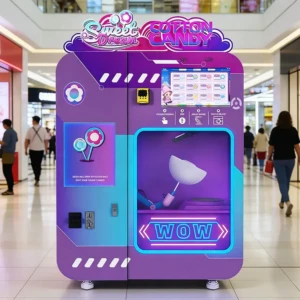
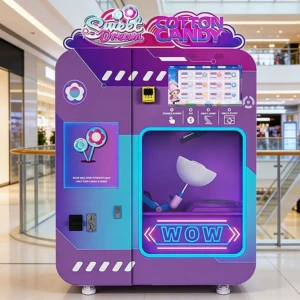


Comments
No comments yet. Be the first to comment!